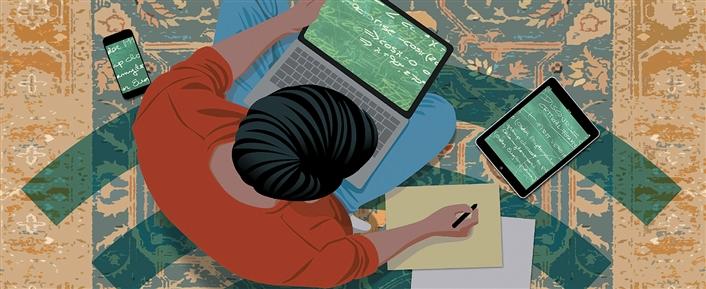According to Todd Rose, a Harvard Professor, generalized curriculum and teaching approaches based on everyone and relevant to none often fail to meet student academic needs or fuel a passion for learning. This infers a one-size-fits-all approach to education is not much effective for students learning.
Research into “Personalized Learning” started for the very first time in 1984, when Benjamin Bloom, an educational psychologist challenged the academic community to replicate, at scale, the effectiveness of one-to-one or small-group tutoring. In his research, he found that students who received personalized instruction outperformed 98% of those who did not.
Thus, Personalized Learning is not a new age concept; however, the emergence of technology in the classroom has made it much relatively easier for educators to develop and deliver student-centred lessons. Additionally, there are many eLearning resources and tools, such as personalized learning apps to help personalize the learning journey of each student. For example, Learnflix app, one of the best personalized educational apps help students learn at their own pace enabling them to perform well in the examinations.
What is Personalized Learning?
Students tend to learn in different ways and at different paces. Personalized Learning is a Learning model based on this premise. It is an educational approach that aims to customize learning according to student’s strengths, needs, skills and interests.
Benefits of Personalized Learning
Increases student engagement – Conventionally, the teacher was the classroom authority who decided on what students would learn, how, and when. However, with the personalized learning approach, students are encouraged to have greater engagement with the subject. And, the teachers can help them to identify how they can learn best and to set their own goals and targets for progress.
Facilitates self-paced learning – Unlike conventional classroom learning, personalized learning allows students to manage the speed and skill level at which they can learn. So, the students who learn at a faster pace don’t get bored while waiting for their classmates to catch up. While those who take longer to learn do not fall behind and become demotivated, they learn at their own pace and as per their convenience.
Helps monitor learner’s performance – Personalized learning program can allow teachers to monitor their students’ actual progress against their targeted progress in real-time. The teachers can easily identify and help students who are struggling with a concept and give one-to-one attention to them if needed.
Apart from all the crucial benefits mentioned above, Personalized Learning helps students to build self-advocacy skills. Thereby encouraging them to speak up about what interests them and, let them become equal partners in their learning journey.
Conclusion:-
Personalized learning, when applied rightfully can move mountains for the students. This approach of learning has the potential to help and meet the needs of kids with learning and thinking differences in a better way. Further, the students are enthusiastic about personalized learning since they have a say in their learning and a clear understanding of their learning goals and ways to achieve them.
